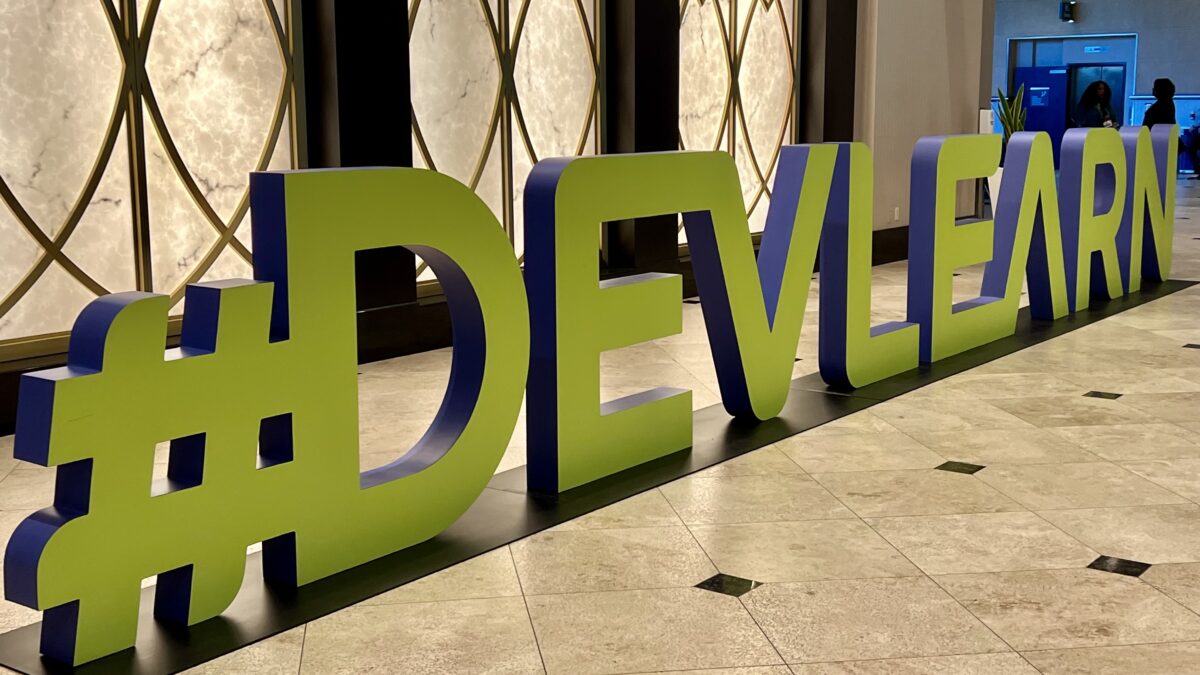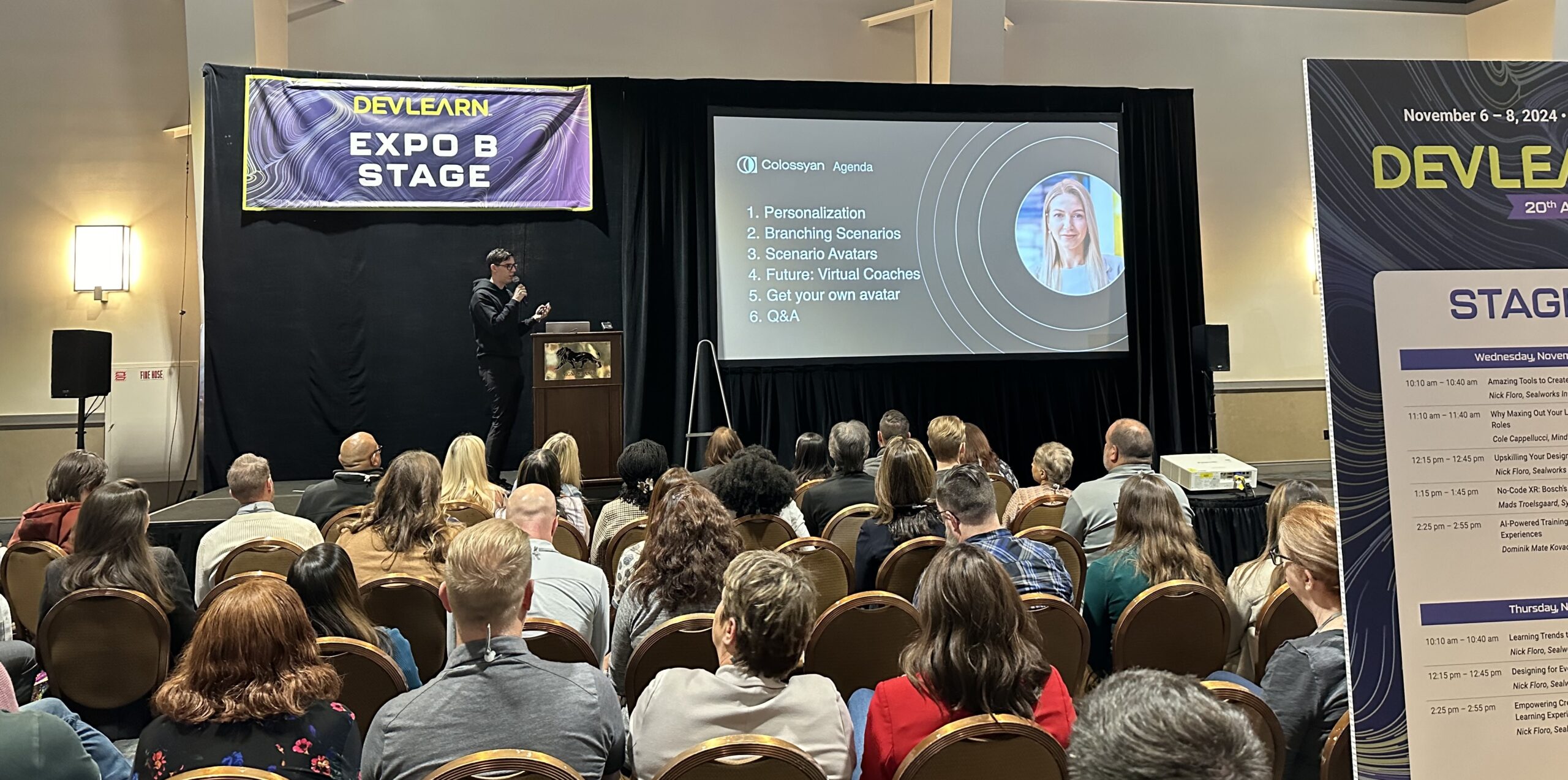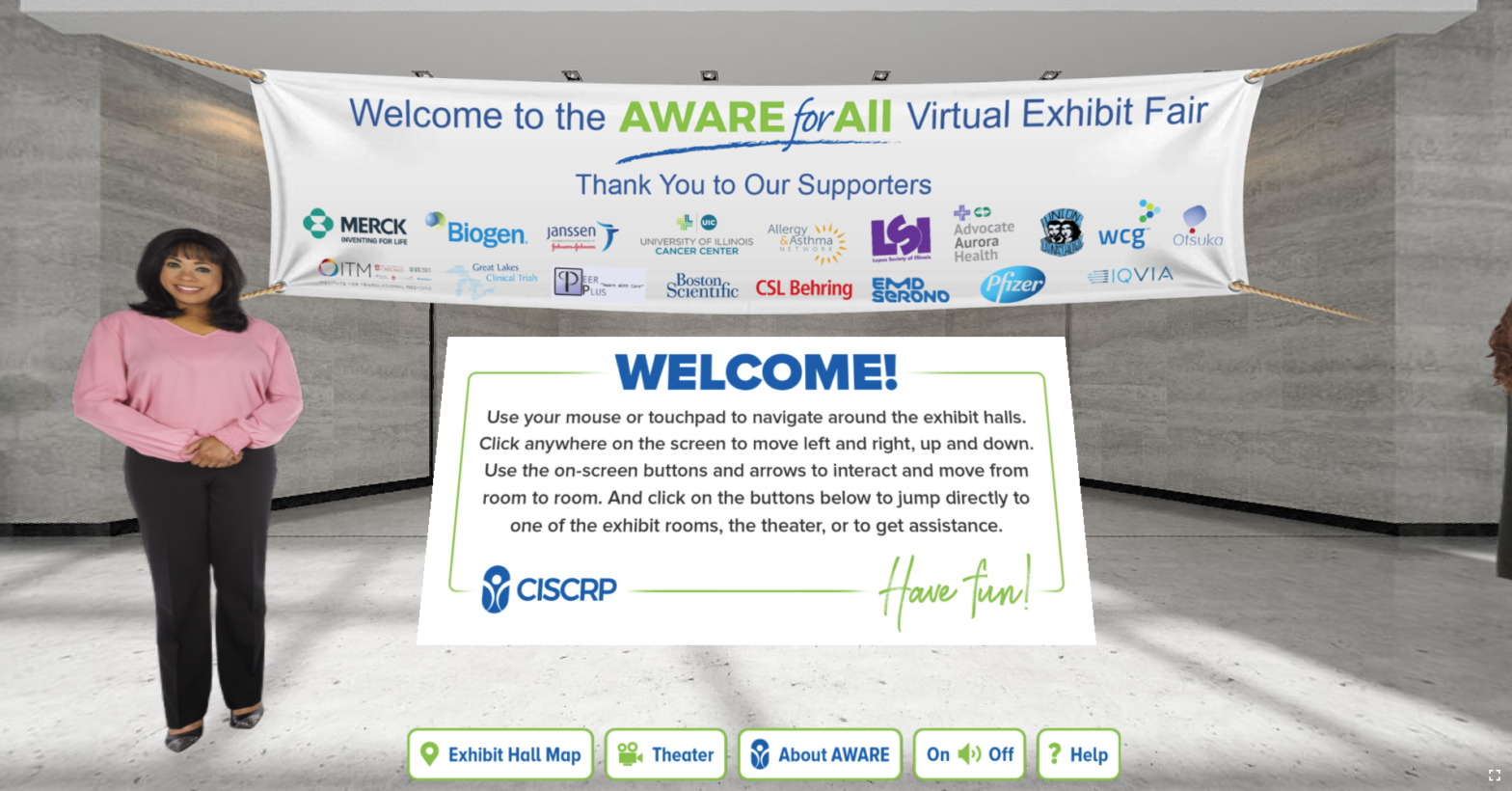DevLearn 2024: An Interview with the Illumina Interactive Learning Team
 Walking into the DevLearn conference in Las Vegas this past November felt like stepping into the nerve center of learning technology. This isn’t some stuffy academic gathering, but a vibrant mix of instructional designers, developers, and learning professionals who are genuinely excited about how technology is changing the way we learn and train. The 2024 conference buzzed with energy, but it was artificial intelligence that truly dominated every conversation. From hallway discussions to packed keynote sessions, AI wasn’t just a buzzword—it was the underlying current reshaping everything from corporate training to educational strategies.
Walking into the DevLearn conference in Las Vegas this past November felt like stepping into the nerve center of learning technology. This isn’t some stuffy academic gathering, but a vibrant mix of instructional designers, developers, and learning professionals who are genuinely excited about how technology is changing the way we learn and train. The 2024 conference buzzed with energy, but it was artificial intelligence that truly dominated every conversation. From hallway discussions to packed keynote sessions, AI wasn’t just a buzzword—it was the underlying current reshaping everything from corporate training to educational strategies.
Illumina Interactive representatives were there to participate in sessions, learn, speak, and become immersed in everything DevLearn 2024 had to offer.
I interviewed the following three individuals for this article:
- Michael Getz, President and Founder. Michael brings over three decades of strategic leadership in learning technology and innovation.
- Jason Kramer, Director of Learning Development. Jason is an eLearning technologist and creator. He develops solutions with employee skill transformation in mind.
- Allison Bell, Director of Instructional Design Services. Allison specializes in meeting learners where they are and designing experiences that bridge critical skill gaps in organizations.
Here’s what they have to say!
What do you see as special or unique about the DevLearn conference?
Michael
DevLearn has really become the annual learning & development conference specifically focused on cutting-edge and emerging learning technologies and tools, where industry professionals can get a great sense of trends and where leaders can share their predictions for the future. We went this year to see how the latest tools and technologies will impact our processes and approaches for developing learning applications, and to make connections with other companies – tool and technology vendors, potential production partners, and colleagues in the industry.
Jason
I appreciated the cutting-edge trends in learning development technology from the learning professionals that are “down in the trenches” doing the work. It felt hands-on and practical. There were many cool new tools and thoughts on how to use them. For a big conference, participants still felt the collective “we” and the host organization acted as a partner in our learning experiences. It was a positive, forward-looking, and creative atmosphere.
Allison
This year’s conference showcased the transformative impact of AI on learning development while reinforcing timeless L&D principles like strategic needs analysis and solid instructional design. The conference highlighted how generative AI can streamline development processes without compromising the fundamental goal of creating meaningful learning experiences.
What were some of the most exciting, innovative ideas, or insights you encountered at the conference?
Jason
The use of generative AI to create unique tools designed to meet a specific need. For example, say you have experienced Subject Matter Experts (SMEs) who are having trouble providing actionable feedback. You can ask genAI to create a tool – aimed at helping them – that is tailored towards your specific feedback need. Don’t have a way to deliver the new SME feedback tool? You can ask genAI to create a webpage that integrates the tool. There were many examples like this at the conference that just blew me away and made me start to think in exciting new directions when it comes to genAI tools.
Allison
I came away with some new ideas for using generative AI to help create rapid design drafts that we can share with stakeholders early on in the process to get initial feedback and check for alignment. I also picked up some additional tips for incorporating AI tools into our workflow in ways that will save time while still delivering quality learning experiences.
Michael
Like our designers and developers, many of the eLearning professionals I met at the conference have been using AI tools throughout the instructional design, graphics and media design phases of development, and in creating content chatbots and other support tools. But it’s also likely that we’re going to start to see further integration of AI into course deployment and delivery – right into the SCORM and xAPI players – in the forms of more advanced types of adaptive learning and personalization of courses to the specific learner. We may soon be seeing “self-healing courses” that adjust in real-time to the learner’s needs to provide remediation, repeat knowledge checks, and things like that.
Were there any specific services, tools, or technologies that stood out?
Allison
I was most interested in some of the translation tools – like Smartcat (www.smartcat.com) – that can quickly convert eLearning content into multiple languages while preserving the instructional flow and context. I was also impressed by new accessibility tools that help make our learning content more inclusive without adding significant development time. In addition, there are a lot of new tools that help streamline video creation and editing, which can help more rapidly provide training solutions to learners.
Jason
A few of the tools I’ll be exploring further include Framer.ai (www.framer.com) – need a quick website that looks great and that you can present to your stakeholders? This tool uses genAI to create a webpage to meet your needs. Descript (www.descript.com) – this is a text-based video editing tool that uses AI to do instant video editing.
Michael
The conference was full of AI tools of course – but I was also interested in other tools and technologies – peer-to-peer/social learning, for example, as well as “project health dashboards” and other project management tools. One interesting tool I saw in action in Karl Kapp’s session on Crafting Engaging eLearning, Integrating AI, Storytelling & Gamification – was Learn Brite (www.learnbrite.com) – the “Metaverse for Training Authoring Tool” – it supposedly lets you “launch VR-ready learning modules with immersive branching scenarios … without writing a single line of code.”
Did any particular keynote, concurrent session, or speaker resonate with you?
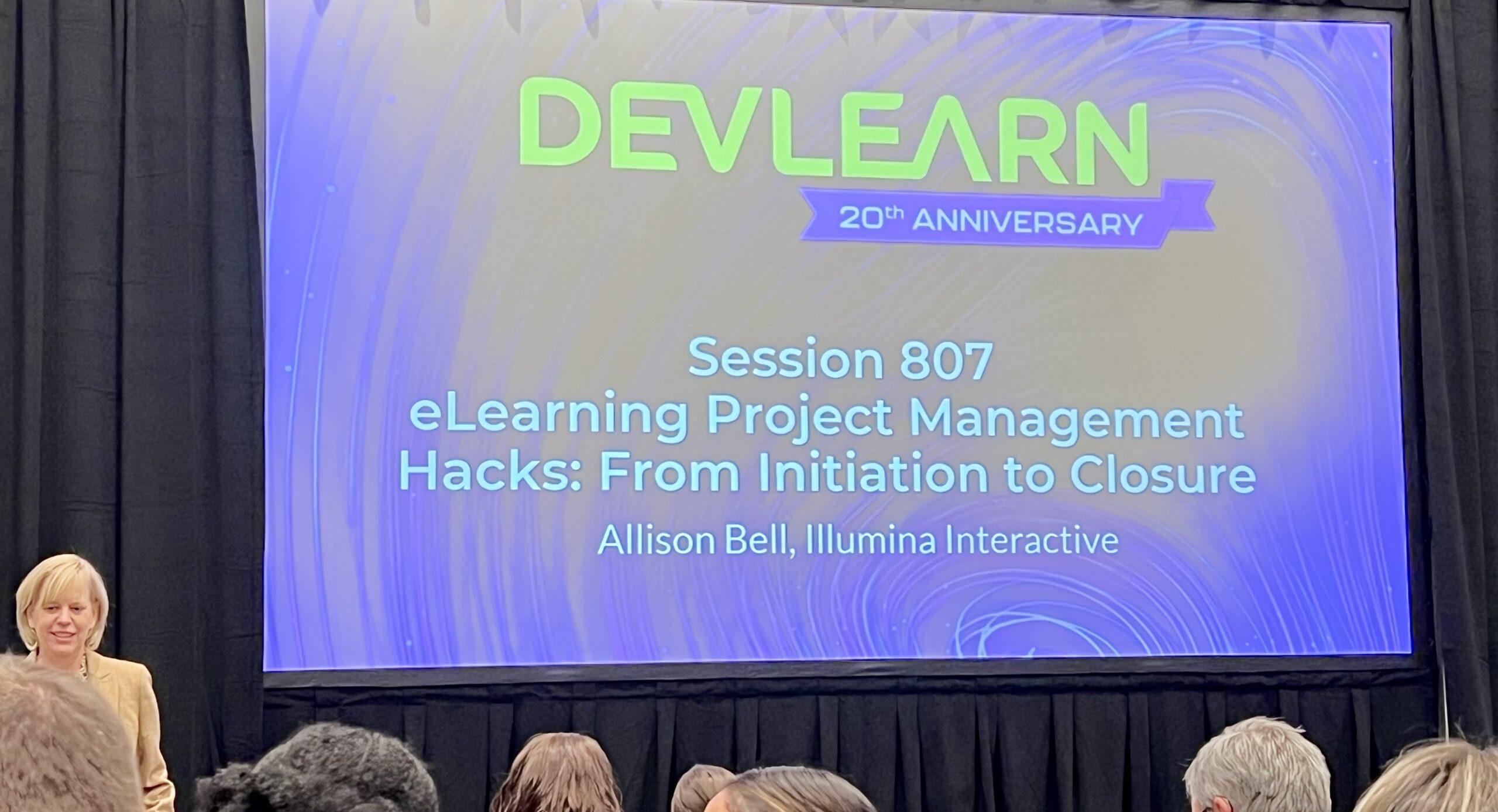 Jason
Jason
Kara Swisher’s keynote cut through everything and resonated with me. Amongst other things she provided insights into the world that created and empowers AI, and how we must hold that world’s “feet to the fire” or the positive effect of AI will be eclipsed by the negative.
I have consistently found Mel Milloway’s’ insights to be of particular veracity and I found myself excited by her work with genAI tools. For example, the utilization of genAI tools to create bespoke genAI apps to meet the business challenges she faced in the session, The Great AI Face-Off: Solutions in the Spotlight. Another example, an app that checks misaligned learning objectives and coaches the user on the re-alignment of the objectives.
Allison
Kara Swisher’s talk about some of the dangers in our technology landscape without sufficient attention to—and regulation of—privacy and misinformation, as well as the addictive nature of some technology designs, resonated with me. As L&D professionals, we need to model responsible technology use in our training programs while teaching critical thinking skills that help learners identify misinformation and understand data privacy implications. This means carefully evaluating the tools we implement and designing learning experiences that promote digital literacy alongside core content.
Michael
I know I’m partial, but I have to say our own Allison Bell’s session, eLearning Project Management Hacks: From Initiation to Closure – was one of the best I attended. Allison shared some of hers and Illumina’s tips, tools and techniques for making sure that projects go as smoothly as possible. I also liked the new “panel” style of some of the DevLearn sessions I attended on the Leadership track where a host and two or three speakers prompted attendees to discuss their own experiences with others at their table.
How will you bring back what you gleaned from DevLearn to the rest of the team or your clients?
Michael
We’ve already held a Lunch & Learn for our internal team where Allison, Jason and I are bringing back some of the ideas we gleaned, but there are also new tools we’re going to explore and approaches we’re starting to share with our clients and development partners.
Jason
In addition to showing new and exciting ideas/tools to team members, I’d like to find ways to make use of genAI tools in existing projects. It’s important for team members to continue to use the tools and see how valuable they can be in the course of a current project. I’d also like to create a task-based genAI curriculum that all team members can take part in to find valuable and creative ways to use genAI tools.
Allison
Some of the specific takeaways for our team is how to responsibly implement generative AI into our work. There are ways that generative AI can reduce our work effort on rote or basic (but necessary) tasks so that we can focus on the aspects of our work that are uniquely human. But that said, we need to do this mindfully, considering intellectual property, content integrity, and data privacy.
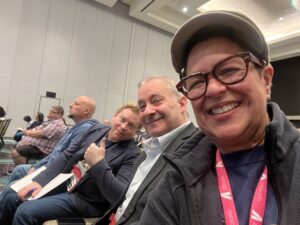 As the conference wound down and attendees started packing up their conference swag and notes, there was a collective sense of both excitement and contemplation. DevLearn isn’t just about showcasing the latest tools; it’s about understanding how these technologies might fundamentally change learning.
As the conference wound down and attendees started packing up their conference swag and notes, there was a collective sense of both excitement and contemplation. DevLearn isn’t just about showcasing the latest tools; it’s about understanding how these technologies might fundamentally change learning.
The conversations ranged from practical implementation of AI in training modules to deeper ethical considerations about data privacy and the future of human-technology interaction. While no one claimed to have all the answers, there was a refreshing openness—a genuine collaborative spirit about navigating the complex landscape of learning technologies. The professionals here weren’t just passive observers, but active participants in shaping what learning might look like in the coming years.
Lissette Wells
Senior Solutions Consultant, Illumina Interactive Learning

